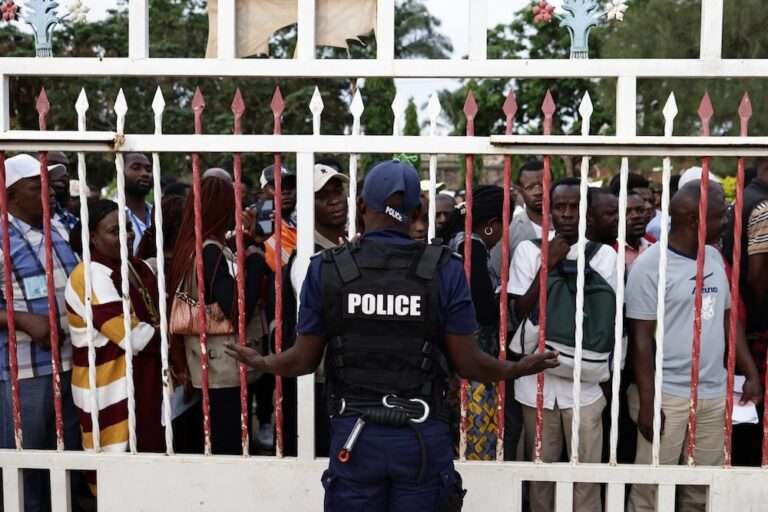(JED/IFEX) – In a leaflet handed out in the capital, Kinshasa, on 27 May 2004, the local daily “Le Potentiel” was threatened for “publishing [an article] vilifying [Mines Minister] Diomi Ndongala”. The leaflet was signed by one Agathe Mbelenge, a spokesperson for a women’s group called the “Mothers of the Former Province of Léopoldville” (“Mamans […]
(JED/IFEX) – In a leaflet handed out in the capital, Kinshasa, on 27 May 2004, the local daily “Le Potentiel” was threatened for “publishing [an article] vilifying [Mines Minister] Diomi Ndongala”. The leaflet was signed by one Agathe Mbelenge, a spokesperson for a women’s group called the “Mothers of the Former Province of Léopoldville” (“Mamans de l’ex-province de Léopoldville”). In the handout, the women said they planned to organise a sit-in at the paper’s office on 31 May. The sit-in was cancelled after “Le Potentiel” warned police, who positioned themselves in front of the daily’s office in order to protect the paper and its staff. The supporters of Mines Minister Eugène Diomi Ndongala subsequently threatened to raid “Le Potentiel” on 3 June.
In its 25 May edition (issue 3131), “Le Potentiel” published an article about a letter that President Joseph Kabila reportedly sent to the country’s four vice-presidents and Parliament, in which he allegedly accused certain ministers of corruption and called for investigations.
In the article, “Le Potentiel” listed the names of several ministers who are reportedly implicated in the scandals, including Diomi Ndongala. In a reply to the paper’s accusations, the mines minister denied the letter’s very existence. Presidential spokesperson Kudura Kasongo confirmed, however, that President Kabila had in fact sent the letter to the vice-presidents and Parliament.


